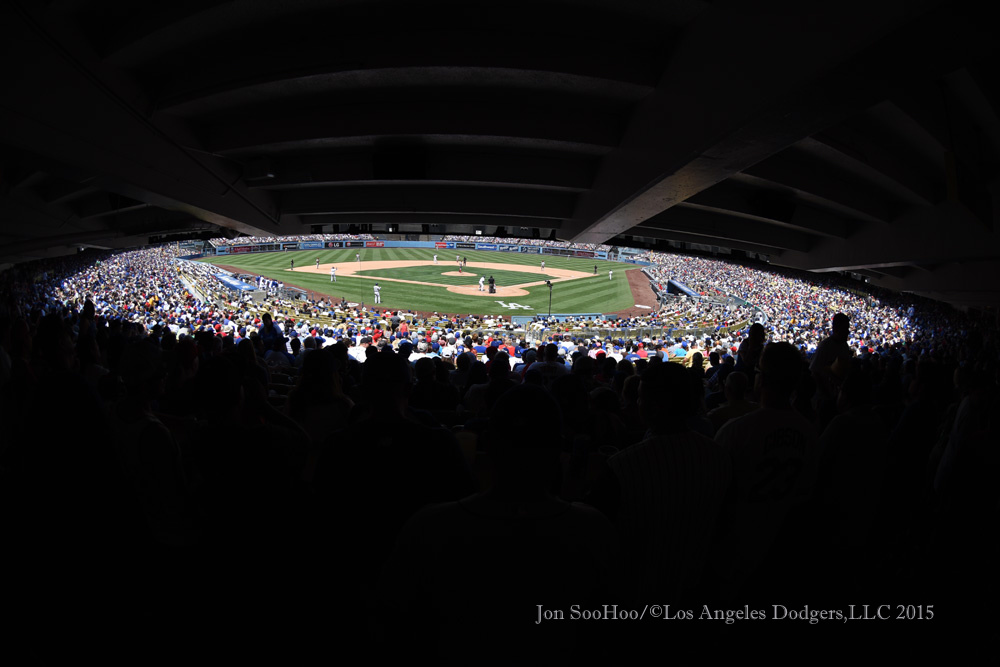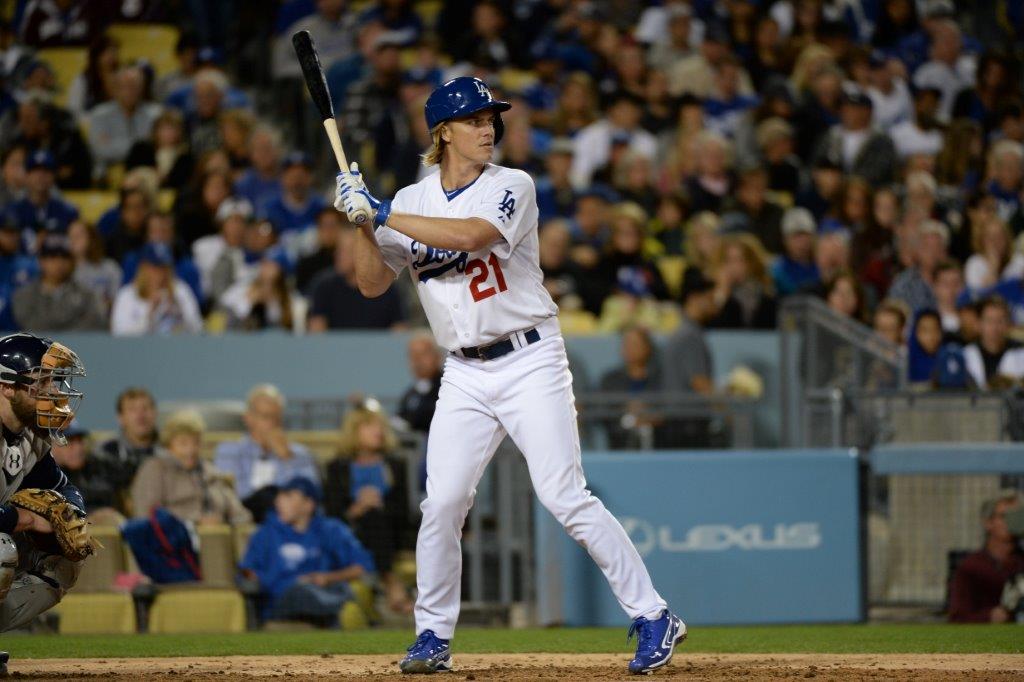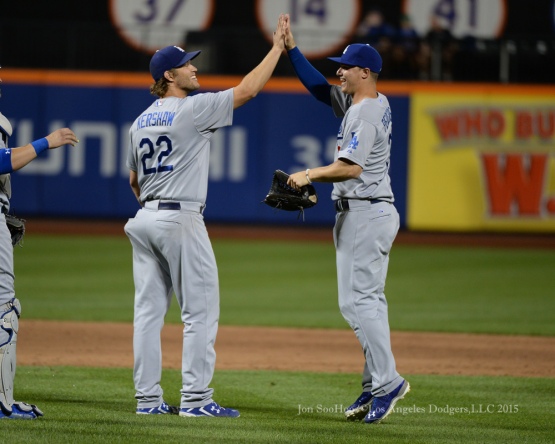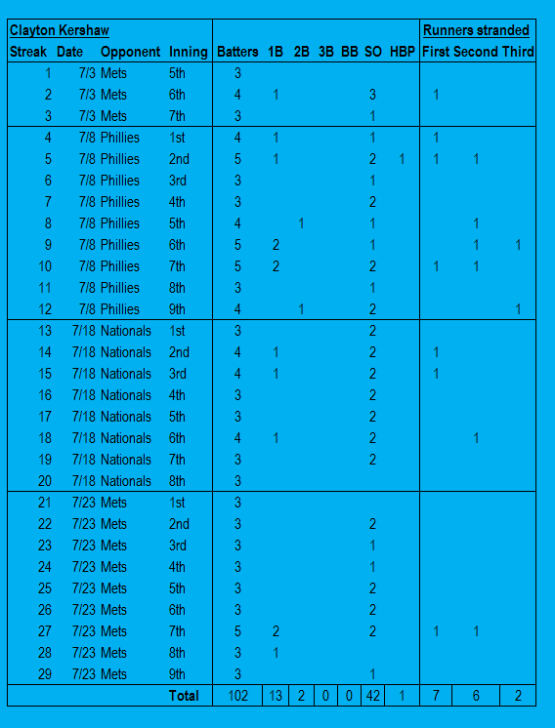[mlbvideo id=”325555983″ width=”550″ height=”308″ /]
By Jon Weisman
Andre Ethier was 0 for 3, then Andre Ethier was the hero.
The Dodgers were pathetic chokers, then the Dodgers were gritty survivors.
Change one swing of the bat, and you change the entire perception of a player and a team.
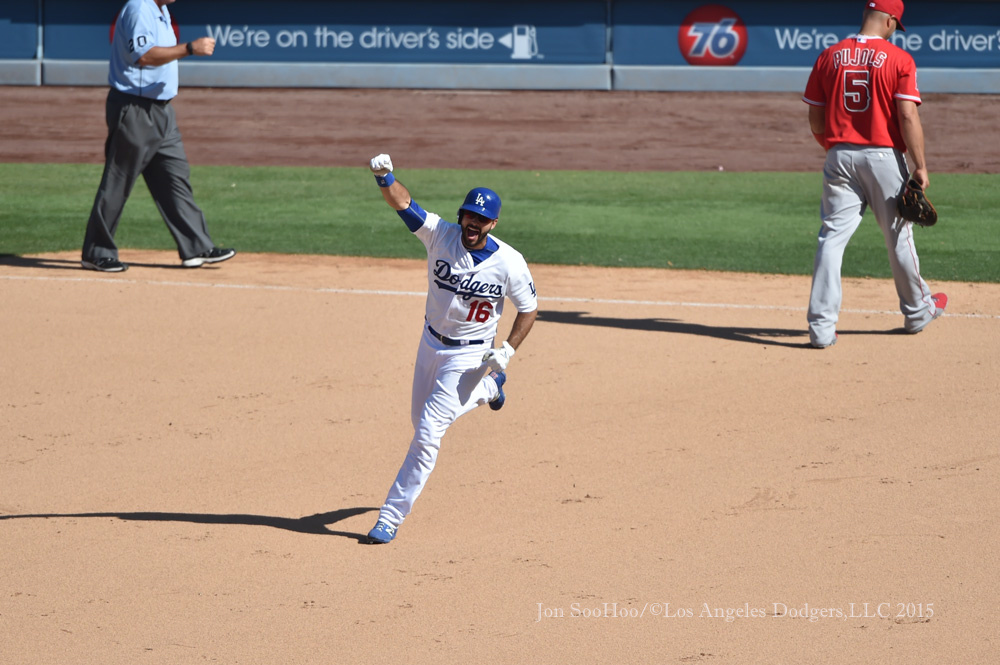
No sport lends itself to microanalysis the way baseball does. Every play — practically every pitch — has such ripe implications.
The problem is that there’s such a widespread expectation for ballplayers to be consistent that any deviation, any break in the pattern, is often perceived as a cataclysmic shift.
Baseball players aren’t arrows, rising and setting through the sky in a predictable arc. They’re fireworks, bursting in every direction and every different color, never the same from moment to moment.
Andre Ethier. Joc Pederson. Kenley Jansen. We’ve even seen it with Clayton Kershaw. For nearly two months to start the season, he wasn’t at the precision-perfect top of his game — and the now infamous “What’s wrong with Kershaw?” stories sprouted like weeds. There was not enough middle, not enough understanding that baseball isn’t static, but rather a continual process, filled with growth and regression and adjustment and counter-adjustment.
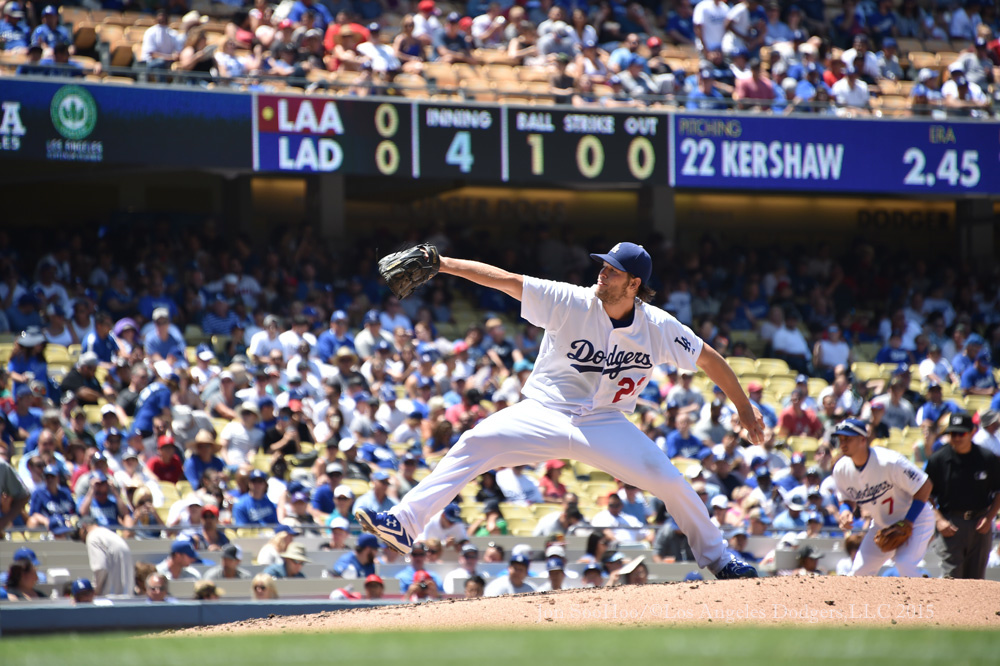
For his last 37 innings, Kershaw has been what so many expect him to be. His maximum is the minimum. Yet if he gives up four runs in his next start, even if he gives up five in the one after that, it doesn’t mean that he has suddenly lost it. Everyone (including Kershaw) will analyze what might have gone wrong, but more likely than not, it will just be the latest ebb, with the next flow not far behind.
It bears reminding that an ERA does not represent what a pitcher will do every game. It is the average of experiences, good and bad, great and awful. Kershaw’s 2015 ERA in 21 starts is 2.37, but do you know how many individual games he’s had an ERA has been between 2.00 and 3.00? Two.
We expect Kershaw’s next inning to be a shutout inning, but we never really know, do we? We never really know anything until it’s happened, which might be why we’re so prone to passionate judgments after the fact.
Baseball’s wonder is that it is so predictable and unpredictable all at once. Baseball makes you a cynic and an optimist. Baseball is conflict.
Is it any wonder that as baseball fans, we can feel so tortured? Or that we keep coming back for more?








